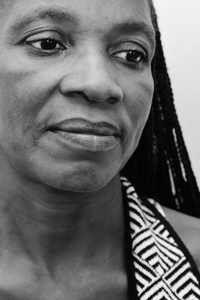Latest News Archive
Please select Category, Year, and then Month to display items
14 June 2024
|
Story Anthony Mthembu
|
Photo Suplied
 Jeremiah Hlahla, a UFS student completing his PhD in Botany at the University of Debrecen as part of an exchange initiative funded by the Erasmus+ Mobility Programme.
Jeremiah Hlahla, a UFS student completing his PhD in Botany at the University of Debrecen as part of an exchange initiative funded by the Erasmus+ Mobility Programme.
As part of an exchange initiative facilitated by the Erasmus+ Mobility Programme, Jeremiah Hlahla, a student at the University of the Free State (UFS), is nearing the completion of his PhD studies at the University of Debrecen in Hungary. Hlahla’s journey, which began in February 2024 and is set to conclude in July 2024, has been a remarkable learning opportunity. “As a first time-traveller to Europe, I have thoroughly enjoyed engaging with people from different countries and cultures,” he said.
The benefits of international collaboration
Hlahla is currently pursuing a PhD in Botany, focusing on plant stress physiology. “My current PhD project investigates the physiological, biochemical and morphological responses of vegetable-type soybean, or edamame, to combined drought and heat stress,’’ he explained. He considers the University of Debrecen the ideal institution to complete his research due to its extensive expertise and resources in similar projects. He noted that his colleagues at Debrecen conduct significant work on plant protection against biotic and abiotic stresses, including salt and drought stress, as well as proteins and amino acids in barley and other legumes.
Given the vast knowledge available on similar projects, Hlahla has found substantial engagement with his work at the University of Debrecen. “Upon arrival, I delivered an introductory lecture presenting my UFS project on the synergistic effects of combined drought and heat stress on the physiology and biochemistry of edamame. It was an engaging session as everyone could relate to my work and asked many questions,’’ he said.
Insights gained from the exchange
Hlahla has also gained valuable lessons that will assist him in his research career, including biotechnology and physiology tools. “I learned how to prepare samples and use high-performance liquid chromatography (HPLC) and reversed-phase ultra-high-performance liquid chromatography (UHPLC) to quantify proteins and amino acids,’’ he said. These techniques are beneficial not only for his current work but will also support future soybean research.
As his experience at the University of Debrecen nears its end, Hlahla reflects on the collaborations and friendships he has formed, which stand out as a significant highlight.
Mekondjo! National exhibition to reveal the courage, determination, repression and torture of PLAN
2014-05-21
|

Angelina Angula ex PLAN soldier injured during the 1978 Cassinga attack - photo by John Liebenberg. |
A pioneering exhibition by John Liebenberg and Christo Doherty is about to open on the Bloemfontein Campus. ‘Mekondjo! born in the struggle for Namibia’ gives South Africans their first insight into the lives of the men and women who fought against the SADF in the bush of Northern Namibia and Angola from 1966 – 1989.
This public exhibition presents eleven portraits of People’s Liberation Army veterans in the process of speaking about and coming to terms with their very different experiences in the Namibian War of Liberation.
When the People’s Liberation Army (PLAN) returned to Namibia after the UN-supervised elections of 1989, it had been fighting against South African rule for 23 years. Formed in 1966 as the armed wing of the South West African Peoples’ Organisation, PLAN had developed from a handful of poorly armed guerrillas to a sophisticated mechanised force. These soldiers fought alongside Angolan, Russian and Cuban soldiers against the SADF and UNITA. Since SWAPO’s election victory, the new government has mythologised the heroism of the armed struggle. The stories of the individual PLAN fighters’ experiences are only now being articulated, though.
Their stories are of great courage and determination against often impossible odds; but also of repression, torture, and disastrous decisions by the PLAN leadership.
The exhibition will be on display from Thursday 22 May to Friday 23 May for the duration of the Silence after Violence conference. The conference is hosted by the UFS Institute for Reconciliation and Social Justice and the Center for Holocaust Studies at the University of Vermont.
Date: Thursday 22 May and Friday 23 May 2014
Place: Centenary Complex, Reitz Hall, Bloemfontein Campus
Exhibition Introduction: Thursday 22 May, 14:00 – 15:30
Other viewing times: intermissions during the Silence after Violence programme
The public is welcome to attend.
* Spotlight photo: PLAN commissioner Nkrumah Mushelenga, Windhoek 2013 – photo by John Liebenberg